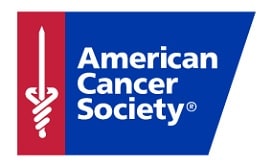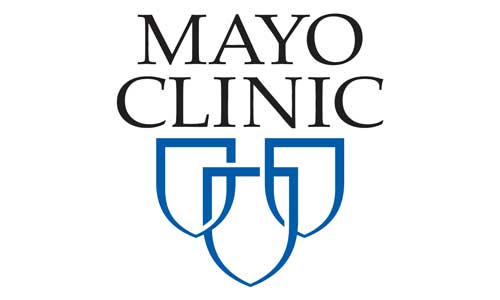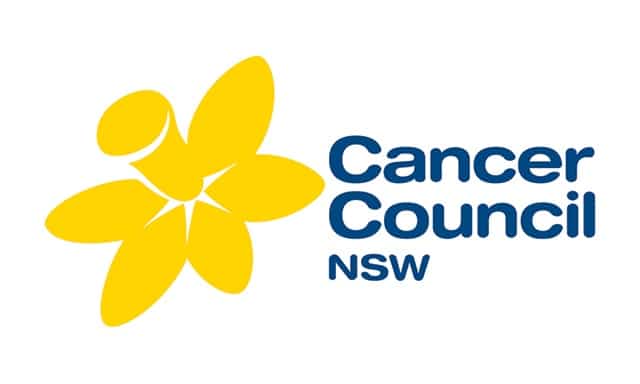What approaches can help you manage gastrointestinal symptoms?
We present many approaches to reducing gastrointestinal symptoms and summarize the evidence regarding their effectiveness.
Top practices and therapies for managing gastrointestinal symptoms
Therapies and practices we have reviewed
Constipation
Diarrhea
Complementary therapies
Heartburn/reflux or esophagitis
Complementary therapies
Liver effects
Nausea and vomiting
Further therapies
Further therapies recommended in clinical practice guidelines; see guidelines ›
Chinese herbal blends
Ginger
Hypnosis
Mind-body modalities (not specified)
Music therapy
Other therapies
A few other therapies have some evidence of benefit. The benefit may be meaningful or even substantial, but our reviews show the evidence so far is preliminary. These are listed below.
Conventional care
Nausea and vomiting
Several antinausea (antiemetica therapy effective against vomiting and nausea) drugs and other treatments are available. Ask your oncologist for conventional treatments if you are experiencing nausea, vomiting, or other gastrointestinal problems.
If you are prescribed antiemetic and anti-anxiety medication before and after cancer treatment, taking it as prescribed is important for best effect. Tell your doctor of any of these situations:
- You miss a dose
- You can’t keep the medication down
- It isn’t working
- It causes unpleasant or serious side effects
Some chemotherapy drugs can cause delayed nausea and vomiting up to 48 hours after treatment. Antiemetic regimens can successfully control this situation.
Anticipatory nausea and vomiting
Anticipatory nausea and vomiting (ANV) is a conditioned anxiety response. A person’s mind links the experience of nausea and vomiting with the various stimuli in the environment where the nausea and vomiting occur. If nausea and vomiting happen frequently enough, nausea and vomiting may be triggered merely by seeing the infusion center, the IV needle, or even the chemotherapy nurse.
ANV can easily be prevented by proactive measures such as administering anti-anxiety medication several hours before and again just before treatment or by preventing/minimizing nausea and vomiting, usually with antiemetics given before, during, and after treatment.
Heartburn/reflux
Conventional medications for heartburn/reflux are quite plentiful, many of them without prescription (over-the-counter). We suggest that before taking over-the-counter medications, you consult your doctor or pharmacist to check for possible interactions with other medications you use. Let your doctor know if your symptoms persist or become worse. Finding and eliminating the cause of the heartburn, when possible, is the best approach, followed by figuring out the most effective treatment.
Long-term use of some anti-reflux drugs, such as proton pump inhibitors, can lead to serious health problems, including increased risk of stomach cancer1Abrahami D, McDonald EG et al. Proton pump inhibitors and risk of gastric cancer: population-based cohort study. Gut. 2022 Jan;71(1):16-24. and Barrett’s esophagus—a risk factor for esophageal cancer.2Zhao Z, Yin Z, Zhang C. Lifestyle interventions can reduce the risk of Barrett’s esophagus: a systematic review and meta-analysis of 62 studies involving 250,157 participants. Cancer Medicine. 2021;10(15):5297-5320. We strongly advise medical supervision.
Self-care practices and complementary therapies
Good or modest evidence of benefit
Good evidencesignificant effects in one large or several mid-sized and well-designed clinical studies (randomized controlled trials (RCTs) with an appropriate placebo or other strong comparison control or observational studies that control for confounds) (this is the CancerChoices definition; other researchers and studies may define this differently) indicates a relatively high degree of confidence that the therapy is linked to the outcomes as noted. Modest evidencesignificant effects in at least three small but well-designed randomized controlled trials (RCTs), or one or more well-designed, mid-sized clinical studies of reasonably good quality (RCTs or observational studies), or several small studies aggregated into a meta-analysis (this is the CancerChoices definition; other researchers and studies may define this differently) means several smaller or at least one large study have found the effect described.
A therapy may show a stronger effect or have more evidence in some situations than in others. The evidence supporting the effects for each practice is listed in the full handbooks available through the image links.
Eating Well: modest and preliminary evidence
Fewer gastrointestinal symptoms, including diarrhea, constipation, and nausea and vomiting, among people eating diets high in fiber or low in fat and lactose (modest evidence)significant effects in at least three small but well-designed randomized controlled trials (RCTs), or one or more well-designed, mid-sized clinical studies of reasonably good quality (RCTs or observational studies), or several small studies aggregated into a meta-analysis (this is the CancerChoices definition; other researchers and studies may define this differently)
Lower severity of esophagitis, oral mucositis and diarrhea during chemoradiotherapy among people receiving immunonutrition (modest evidence)
Less nausea and vomiting among people drinking ginger tea (preliminary evidencesignificant effects in small or poorly designed clinical studies OR conflicting results in adequate studies but a preponderance of evidence of an effect (this is the CancerChoices definition; other researchers and studies may define this differently))
Recommendation not to eat within an hour of bedtime to reduce incidence of gastroesophageal reflux disease3Block KI, Block PB et al. Making circadian cancer therapy practical. Integrative Cancer Therapies. 2009 Dec;8(4):371-86; Block K, Gyllenhaal C. Chapter 6: Nutritional Interventions in Cancer. In Abrams DI, Weil AT. Integrative Oncology. 2nd Edition. New York, NY: Oxford University Press. 2014; Block KI. Life over Cancer: The Block Center Program for Integrative Cancer Care. New York: Bantam Dell. 2009.
Dietary behaviors are identified as contributors to gastroesophageal reflux disease (GERD) in a practice guideline; see guidelines ›
Recommendation to avoid coffee if you’re at risk of esophagitis from chemotherapy or radiation treatment to the chest
Moving More: modest evidence
No evidence of an effectoverall, one or more studies did not demonstrate that a treatment or intervention led to an expected outcome; this does not always mean that there is no effect in clinical practice, but that the studies may have been underpowered (too few participants) or poorly designed. Larger, well-designed studies provide more confidence in making assessments. of exercise on nausea and vomiting, constipation, or diarrhea in a combined analysis of studies
Modest evidence of fewer symptoms among people with symptoms of constipation (not specific to people with cancer) participating in exercise
Sleeping Well: modest evidence
Link between gastroesophageal reflux disease (GERD) and sleep disturbance among adults (modest evidence)
Healthy lifestyle
Hydrate: Especially important If you have a fever or gastrointestinal problems such as nausea, vomiting, constipation, or diarrhea
Hydration is the top intervention for people with levels of calcium that are life-threatening.
We are still reviewing hydration; this is from our research so far.
Body position
Acupressure: modest evidence
Less nausea but not vomiting from chemotherapy among people treated with acupressure (modest evidencesignificant effects in at least three small but well-designed randomized controlled trials (RCTs), or one or more well-designed, mid-sized clinical studies of reasonably good quality (RCTs or observational studies), or several small studies aggregated into a meta-analysis (this is the CancerChoices definition; other researchers and studies may define this differently))
Recommended in practice guidelines to treat nausea and vomiting; see guidelines ›
Acupuncture: mixed evidence
Less chemotherapy-induced diarrhea or nausea and vomiting among people treated with acupuncture (modest evidence)
Less nausea and vomiting among people treated with acupuncture without regard to treatment phase (preliminary evidencesignificant effects in small or poorly designed clinical studies OR conflicting results in adequate studies but a preponderance of evidence of an effect (this is the CancerChoices definition; other researchers and studies may define this differently))
Quicker return of bowel function and less nausea and vomiting after colorectal cancer surgery among people treated with acupuncture (preliminary evidence)
No evidence of an effectoverall, one or more studies did not demonstrate that a treatment or intervention led to an expected outcome; this does not always mean that there is no effect in clinical practice, but that the studies may have been underpowered (too few participants) or poorly designed. Larger, well-designed studies provide more confidence in making assessments. on gastrointestinal symptoms among people treated with acupuncture in a combined analysis of studies
No evidence of additional benefit from massage therapy for nausea during autologous tissue breast reconstruction among people treated with acupuncture in a preliminary study
Recommended in practice guidelines to treat constipation, nausea or vomiting; see guidelines ›
Astragalus: good and modest evidence
Less radiation esophagitis during radiation therapy among people with lung cancer treated with Aidi injection or Shenqi Fuzheng injection, herbal mixtures based on astragalus (good evidencesignificant effects in one large or several mid-sized and well-designed clinical studies (randomized controlled trials (RCTs) with an appropriate placebo or other strong comparison control or observational studies that control for confounds) (this is the CancerChoices definition; other researchers and studies may define this differently))
Less chemotherapy-induced nausea and vomiting or diarrhea among people treated with astragalus-based Chinese medicines (modest evidence)
Less liver dysfunction related to chemotherapy among people treated with an herbal mixture containing astragalus (modest evidence)
Cannabis and cannabinoids: modest evidence
Less chemotherapy-induced nausea and vomiting among people using cannabis or cannabinoids (modest evidence)
Less vomiting among people treated with cannabinoids compared to neurolepticsalso known as antipsychotic medications, these medications block dopamine receptors in the nervous system to manage mental illnesses, such as schizophrenia and bipolar disorder, as well as psychosis (modest evidence)
Comparable effects on nausea and vomiting among people treated with cannabinoids compared to prochlorperazine (modest evidence)
Electroacupuncture: modest to weak evidence
Less vomiting among people with breast cancer undergoing chemotherapy treated with electroacupuncture (modest evidence)
Less nausea and vomiting after major breast surgery among people treated with electroacupuncture (preliminary evidence)
Less diarrhea among people with breast cancer during or after chemotherapy treated with electroacupuncture (weak evidenceone or more case studies, supported by animal evidence OR small treatment effects of limited clinical significance OR studies with no controls OR weak trends of effects (this is the CancerChoices definition; other researchers and studies may define this differently))
Recommended in a practice guideline to control nausea and vomiting during chemotherapy; see guidelines ›
Low-dose naltrexone: modest evidence
Less constipation among people with advanced illness, including cancer (modest evidence)
Moxibustion: modest evidence
Less nausea, vomiting, and diarrhea during or after conventional cancer treatments among people with cancer treated with moxibustion (modest evidence)
Recommended in practice guidelines to treat chemotherapy-associated nausea and vomiting or to relieve gastrointestinal symptoms such as vomiting; see guidelines›
Probiotics and prebiotics: mixed evidence
Lower incidence of abdominal distension after surgery among people with gastrointestinal cancer treated with probiotics or synbiotics (good evidence)
Better bowel function after cancer treatment, including surgery, among people treated with probiotics (good evidence)
Fewer chemotherapy-induced gastrointestinal complications during chemotherapy after colorectal cancer surgical resection among people treated with probiotic tablets (preliminary evidence)
Less functional constipation during chemotherapy among people with cancer treated with a probiotic (preliminary evidence)
Lower risk and severity of treatment-induced diarrhea among people with cancer treated with probiotics, although some variations are seen across populations and treatments (good evidence)
Lower frequency of diarrhea during pelvic radiation among people treated with a prebiotic (preliminary evidence)
Lower frequency and intensity of vomiting but no evidence of an effect on nausea during chemotherapy and radiotherapy among people with cervical cancer treated with a synbiotic (preliminary evidence)
Not specific to cancer:
- Shorter duration of diarrhea during antibiotic therapy among patients treated with specific probiotics (not specific to cancer) (good evidence)
- Less constipation among people treated with probiotics (not specific to cancer) (modest evidence)
- No evidence of an effect on gastrointestinal function after elective orthopedic or colorectal surgery (not specific to cancer) among elderly people treated with probiotics in a small trial
- Lower markers of enzymes indicating liver dysfunction among overweight or obese and insulin-resistant people treated with a probiotic (not specific to cancer) (preliminary evidence)
Relaxation techniques: mixed evidence
Less nausea during cancer treatment among people treated with relaxation, often with other complementary therapies (modest evidence)
Not specific to cancer:
- Lower reflux symptom ratings and total esophageal acid exposure after a stressful task among people with reflux disease receiving a relaxation intervention (preliminary evidence)
Recommended in practice guidelines to treat nausea and vomiting and heartburn; see guidelines ›
Relaxation combined with guided imagery: modest evidence
Less nausea and/or vomiting during chemotherapy treatment among people with cancer treated with guided imagery and progressive muscle relaxation or another relaxation technique (modest evidence)
Tai chi or qigong: modest evidence
Less diarrhea or irregular defecation among people with cancer practicing qigong (modest evidence)
Vitamin C: intravenous use: modest to weak evidence
Less nausea during standard cancer treatment among women with breast cancer treated with intravenous vitamin C (modest evidence)
Less nausea, vomiting, constipation, and liver dysfunction during chemotherapy among women with advanced triple-negative breast cancer treated with intravenous vitamin C (preliminary evidence)
Less constipation among people with cancer treated with high-dose intravenous vitamin C (weak evidence)
Yoga: modest evidence
Fewer treatment-related gastrointestinal symptoms among people practicing yoga (modest evidence)
Preliminary or weak evidence of benefit
Preliminary evidencesignificant effects in small or poorly designed clinical studies OR conflicting results in adequate studies but a preponderance of evidence of an effect (this is the CancerChoices definition; other researchers and studies may define this differently) typically indicates that not much research has been published so far, although the outcomes may be meaningful. Weak evidenceone or more case studies, supported by animal evidence OR small treatment effects of limited clinical significance OR studies with no controls OR weak trends of effects (this is the CancerChoices definition; other researchers and studies may define this differently) may mean that the effects are small or that only very preliminary research has been published.
Therapies with insufficient evidence or no evidence of benefit
- Insufficient (conflicting) evidencepreclinical evidence only OR clinical studies with such poor or unclear methodology that no conclusion can be drawn OR conflicting findings across clinical studies with no preponderance of evidence in one direction; conflicting evidence occurs when studies find conflicting effects (positive effect vs no effect or negative effect) with the same treatment and the same general study population (same cancer type, for example) (this is the CancerChoices definition; other researchers and studies may define this differently) of an effect on nausea during chemotherapy among people with cancer treated with guided imagery in preliminary studies
- No evidence of an effectoverall, one or more studies did not demonstrate that a treatment or intervention led to an expected outcome; this does not always mean that there is no effect in clinical practice, but that the studies may have been underpowered (too few participants) or poorly designed. Larger, well-designed studies provide more confidence in making assessments. on nausea, vomiting, or ileus from surgery among people with colorectal cancer treated with guided imagery in preliminary studies
- Not specific to cancer:
- No evidence of an effect on nausea or vomiting among people undergoing colorectal or anorectal surgery treated with guided imagery
- Recommended in a practice guideline to treat anticipatory nausea and vomiting; see Anticipatory nausea and vomiting (above) for more information.
- No evidence of a difference in use of antiemetic medication among people recovering from coronary artery bypass surgery treated with healing touch in a preliminary study
- People with advanced metastatic tumors following a ketogenic diet had stable diarrhea but worse nausea and vomiting over time.
Non-aspirin non-steroidal anti-inflammatory drugs (NSAIDs) ›
- No evidence of an effect on chemotherapy-induced vomiting or diarrhea among people with stomach cancer treated with celecoxib in a preliminary study
- No evidence of an effect on bowel symptoms during radiotherapy among men with prostate cancer treated with curcumin in a preliminary study
Further therapies used to manage gastrointestinal symptoms
These therapies are used to manage gastrointestinal symptoms. Those in bold are recommended in at least one clinical practice guideline; see guidelines ›
Breathing (diaphragmatic)
Chamomile tea
Cognitive behavioral therapy
Chinese herbal blends
Ginger
Hypnosis
Indian gooseberry
Licorice or deglycyrrhizinated licorice, DGL
Mind-body modalities (without mentioning specific therapies)
Music therapy
Quince
Rikkunshito, a traditional Japanese herbal medicine
Personal story
Janie Brown is an oncology nurse and co-founder of a cancer retreat program and center in Vancouver, British Columbia. Her story is a treasure trove of helpful information. She describes how her partner with breast cancer and her team made decisions about chemotherapy, wove in useful complementary therapies to prevent and minimize treatment side effects and created a caring community. The integrative plan staved off usual chemotherapy side effects including nausea.
Helpful links

This includes an expanded list of foods for the customary BRAT (bananas, rice, apples, and toast) diet for people recovering from vomiting and/or diarrhea
Cookbooks with tips and recipes for those experiencing nausea and vomiting
Learn more
References







